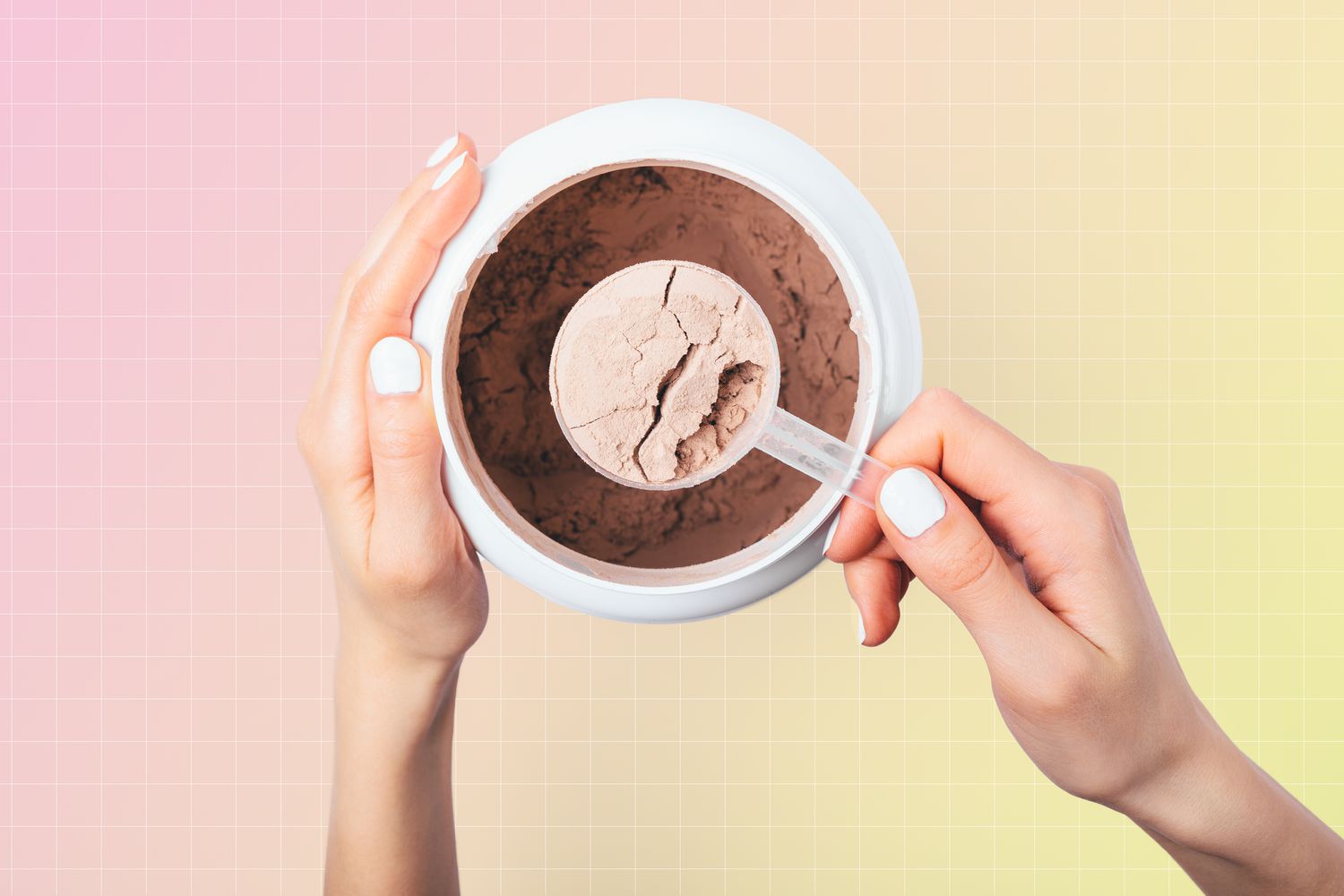Are you guilty of rummaging through your pantry only to find a dusty old box of protein powder that seems to have been there for years? We’ve all been there. But the question is, can you still put that protein powder to good use or will it end up in the trash? In this article, we explore whether protein powders expire, explore the potential risks of consuming them past their expiration date, and reveal some telltale signs that your protein powder is expired. body is damaged. Plus, we’ll equip you with the know-how to properly use and store protein powders, ensuring you get the most out of your supplements.
Related: What happens to your body when you take protein powder every day
Does Protein Powder expire?
Protein powders have become a staple for many health-conscious people, whether you’re an athlete, a weekend warrior, or just looking to supplement your diet with an extra boost of protein. . But what about their shelf life? Well, the good news is that most protein powders are made to have a long shelf life. However, this can vary depending on the type of protein powder and its ingredients. Whey and casein powders, which are derived from milk, may have a shorter shelf life than plant-based options such as pea or rice protein. Store protein powder in a cool, dry place, away from direct sunlight to ensure it stays fresh.
says Sarah Schlichter, MPH, RDN, a registered dietitian at Bucket List Tummy Eat Well, Like most foods, protein powders can expire and have a finite shelf life, although they have a longer shelf life than many other products if stored properly. Part of this may be due to additives, emulsifiers and ingredients. The shelf life of most protein powders is 9 to 18 months, although those with fewer ingredients can expire quickly. Some protein powders may have a ‘best before’ date that you can use for reference, although not all do.
Related: Pea Protein vs. Whey Protein: Which Is Better?
Can you use expired protein powder?
Consuming protein powder that is slightly past its expiration date will not pose an immediate health risk. Expiration dates primarily indicate when the product is at peak freshness and potency. But what happens when you go beyond that date? Over time, the quality, taste and nutritional value of protein can decrease, says Schlichter. It may not mix well, have a slightly altered flavor, or lose some protein content. In essence, it’s like sipping on a not-so-fresh protein shake. However, if the powder smells bad, looks significantly different, or has an odd texture, it’s best to be safe and throw it away.
Risks
- Nutrient degradation: Over time, the nutritional content of expired protein powder may decrease, reducing its effectiveness in supporting muscle recovery and growth.
- Altered flavor and texture: Expired protein powders can have an unpleasant taste, a gritty texture, or even a rancid smell, making the powder less palatable.
- Digestive discomfort: In some cases, consuming expired protein powder can lead to digestive problems, such as bloating, gas, or upset stomach, especially if the powder has gone bad.
- Reduced protein content: Expired protein powders may contain less protein than stated on the label due to degradation over time, potentially affecting your ability to meet your protein intake goals.
Protein powders are less likely to be contaminated with bacteria because they are typically not resistant to water or moisture if stored properly in a cool, dry place, Schlichter explains. However, the nutrients and protein in the powder may decrease or become less effective over time. Although someone is unlikely to get foodborne illness from old or expired protein powder, they may experience mild digestive symptoms or just an unpleasant taste.
Related: The 5 best protein shakes and powders, taste-tested by nutritionists and editors
How to tell if your protein powder has gone bad
- Check expiration date: The easiest way to determine if your protein powder has gone bad is to check the expiration date or best before date on the package. If it is past this date, consider it expired as its quality may be affected.
- Check for unusual odors: Try sniffing your protein powder. It clearly indicates that it has gone bad if it emits an unusual or foul odor. Fresh protein powder should have a neutral or slightly sweet aroma.
- Check for clumping or discoloration: Visually inspect the dough. If you notice the product clumping, changing color or any signs of moisture, this may indicate the product has spoiled. Protein powder should have a consistent texture and color.
- Test the taste carefully: Although this is not the most recommended method, you can taste a small amount of protein powder to check for any off-flavors. If it tastes different than usual, is bitter or rancid, discard it immediately.
If you notice a strange smell or taste, a different color, or even a different texture (lumpy, damp, moldy), it’s best to throw out the protein powder and buy a new one, Schlichter advises.
How to store your protein powder
Schlichter says protein powder should be stored in a cool, dark and dry place where it can avoid moisture and oxidation caused by light or heat. Storing protein powder at the appropriate temperature, around 70 to 72 degrees F, will ensure a longer shelf life. Also, completely close or seal your protein powder container or bag to prevent moisture or other particles from entering. If your protein powder comes in a bag that you can’t completely seal, you can double bag it or put it in a larger zip-top bag to completely seal the inside.
Related: 16 Protein-Rich Smoothies to Start Your Day Strong
Bottom line
It is usually safe to consume protein powder supplements slightly past their expiration date, as the best before date is when it has lost its peak freshness. However, using protein powder after its expiration date can cause the supplement to lose some of its nutritional properties and lead to gastrointestinal symptoms such as bloating, gas, and stomach discomfort. If your protein powder is expired, check for unusual odors, discoloration, clumping, and loss of flavor. And, as always, don’t rely on protein powder supplements as your sole source of protein and use them as their name suggests. supplement a healthy, balanced diet.
Related: Can too much protein powder cause side effects?
#safe #expired #Protein #powder #nutritionist #weighs
Image Source : www.eatingwell.com

